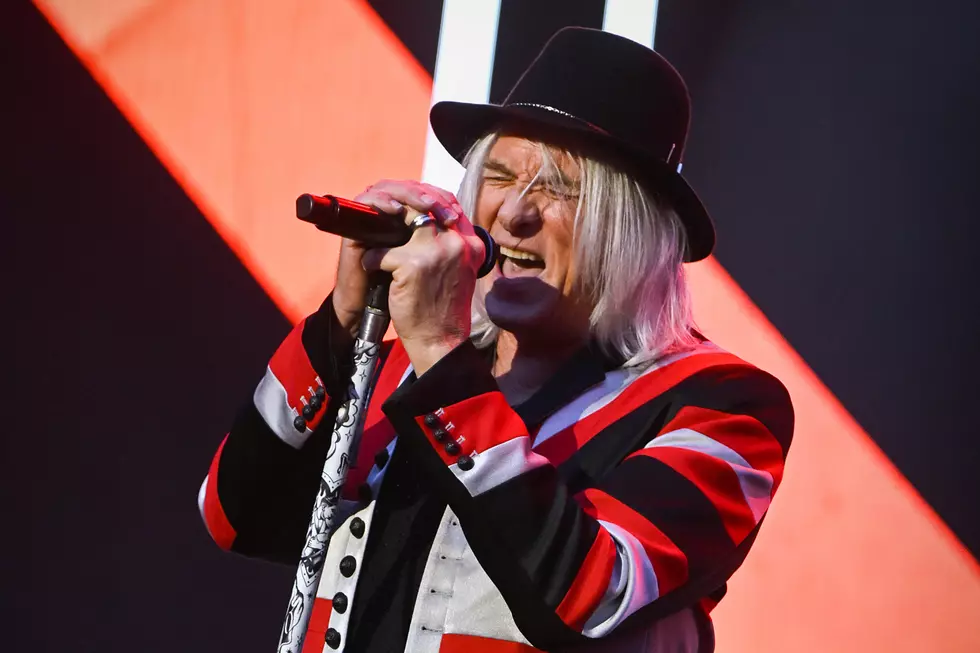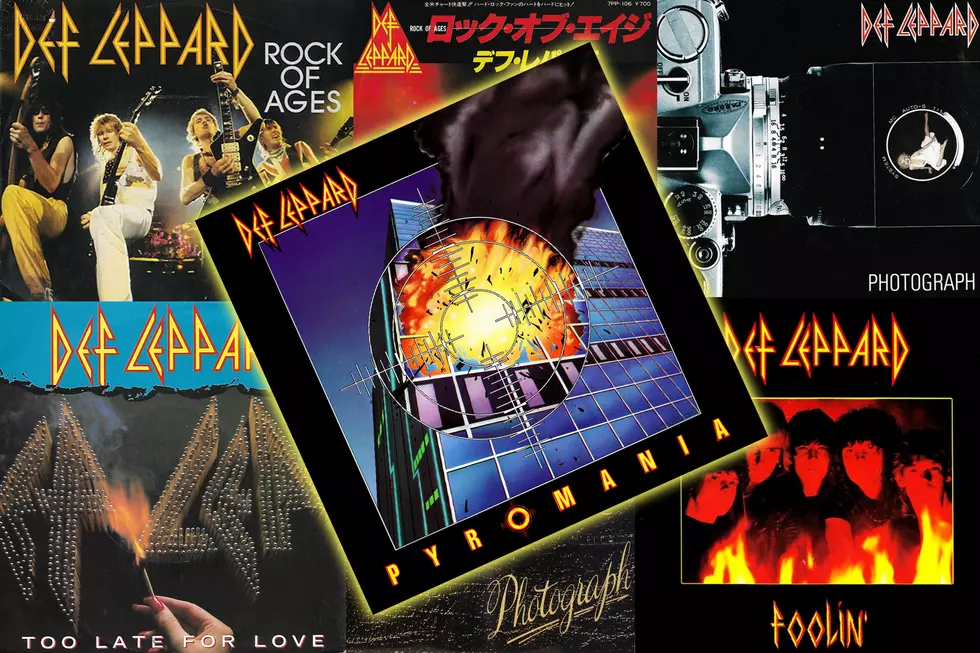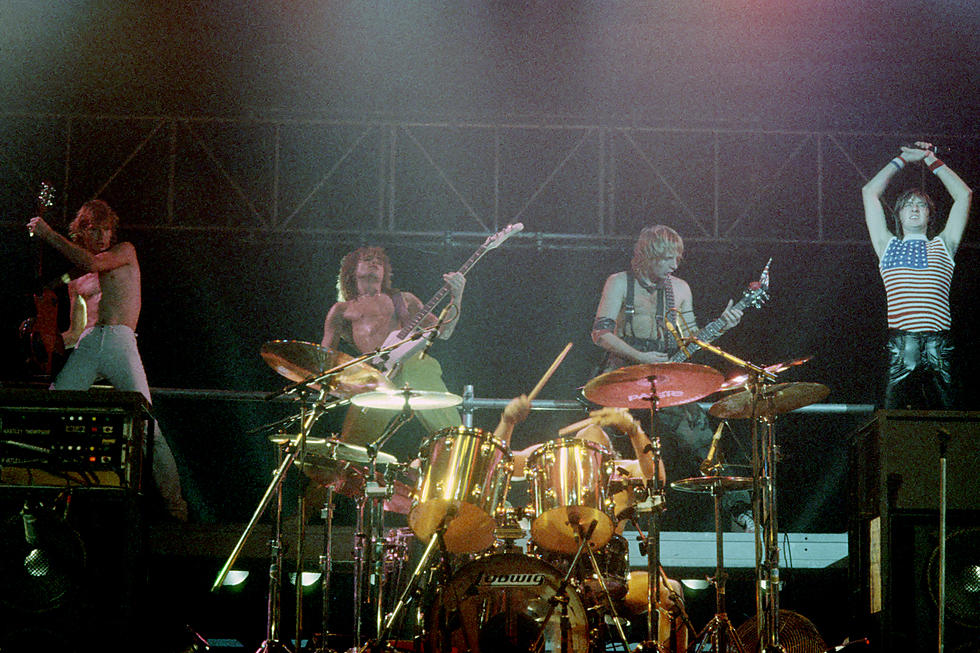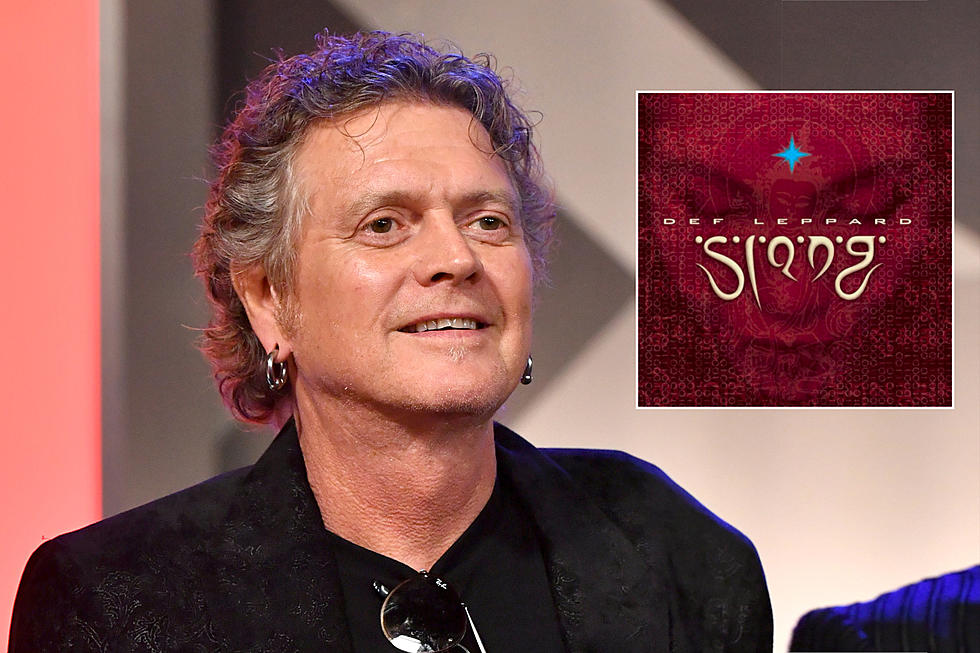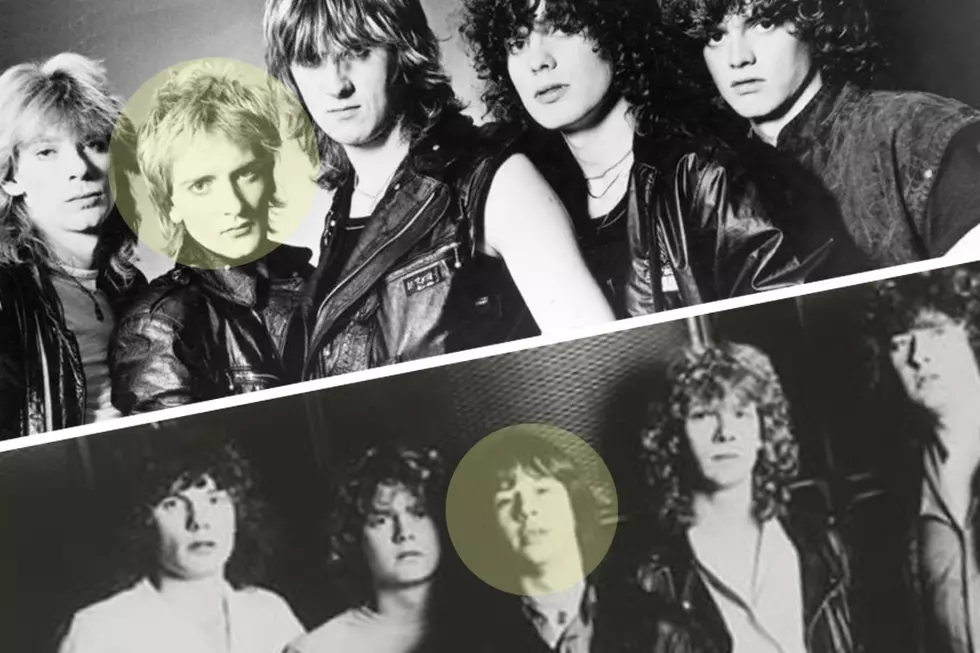
The Day Def Leppard Replaced Pete Willis With Phil Collen
Def Leppard were well into the recording of third album Pyromania when they decided co-founding guitarist Pete Willis would have to go.
His drinking problem had become exacerbated to the point that, while tracking the song “Stagefright,” he was incapable of playing. Producer Mutt Lange refused to work with him any longer. Willis was sent home from London to Sheffield to sort himself out – but the rest of his bandmates had already decided they didn’t want him to return.
Singer Joe Elliott drew the short straw of breaking the news, after having previous experience in firing Tony Kenning, Pete Martin and Frank Stuart-Brown. The frontman called Willis on July 10, 1982, but the guitarist asked for a meeting to clarify matters. That took place the following day, with the guitarist’s departure confirmed. “He was nice about it,” said Willis of Elliott’s call in the 1987 band biography Animal Instinct. “I said I wanted to come down and talk about it. I didn’t want to change their minds as much as ask why – although deep down, I knew why.”
Def Leppard already had their replacement lined up. In fact, they’d invited guitarist Phil Collen to leave his glam-metal band Girl the previous year, since the thought of removing Willis had already occurred to them. Collen said no in 1981, but he wasn’t going to say no again. Elliott had called him after getting off the phone with Willis, inviting him to a meeting on July 12.
Collen was well-known in the Def Leppard camp. He’d jammed with them on a number of occasions, and he was fondly regarded after sending them a congratulatory telegram in April 1980, when they made a triumphant headline performance at London’s Lyceum Theatre. During the band’s 1981 tour with Ozzy Osbourne, Elliott had half-jokingly asked him, “Can you learn 16 songs in four days?” But the idea hadn’t gone any further until he was asked to attend a meeting at the London home of the band's manager Peter Mench.
The event itself was memorable for Collen’s car having broken down outside the house. Instead of beginning the meeting, Elliott went outside to help repair it, and the pair accidentally started it up in reverse, nearly sending the vehicle through Mench’s window. Agreeing to a trial period, Collen was asked to contribute to the ongoing Pyromania sessions. “The plan was for Phil to hang around the studio and put down lead guitar parts on a handful of tracks, just to see if the chemistry was right," the band recalled in Animal Instinct. "Mensch figured there would be plenty of time to repair any damage if Phil didn't work out.
“Phil received tapes of a few unfinished tracks to cook up some solo ideas for them. One of the songs, ironically, was ‘Stagefright,’ which had already been Pete’s undoing. The day after his first meeting with Def Leppard, Phil arrived at Battery Studios and told Mutt that he’d worked up a little something for ‘Stagefright.’ Phil played the solo, cut it in one take and dropped in a couple of extra notes on another go-round. That was it – Phil Collen was a member of Def Leppard.”
Asked when he felt he’d become part of the band machine, Collen told Ultimate Classic Rock in 2013, “That first day, actually, because I actually changed the dynamic. Steve and Pete played a certain way, and I played a way more aggressive and flashy style. It seemed to click straight away. Everyone kind of reacted to it positively, so I actually felt really good straight off the bat. None of us were aware any of this thing was going to happen or explode like it did, so we were kind of shocked, pleasantly. It was just an amazing, exciting period."
Collen and Clark soon developed their distinct double-attack approach that came to define the Def Leppard sound as they secured worldwide success with 1987's classic Hysteria, leading to the pair becoming known as the Terror Twins. In the mid-'80s, Collen gave up drinking after becoming addicted himself, became vegan and adopted a bare-chested stage.
The Londoner recalled in 2015 how easy it had felt to fit in with the Sheffield group, telling Metal Talk: “When I met Joe we had the same record collection – Bowie, T. Rex, Roxy Music, Zeppelin, the Pistols. It was really a complete thing.”
But he remembered his arrival as a less official moment. “I didn’t realize I was joining the band – I was helping my mates out,” he said. “It was amazing working with Mutt. He was so inspiring and gets you so inspired. Half the time you want to do it just to please him. It was very different.” And he maintained he was never officially asked to become a member of Def Leppard: “Some time in the ‘90s, Joe said, ‘Okay, do you want to join the band?’ And I refused, obviously.”
Willis went on to work with short-lived supergroup Gogmagog, which featured former Iron Maiden members Paul Di’Anno and Clive Burr, plus future Maiden man Janick Gers and Whitesnake’s Neil Murray. (Coincidentally, Collen and Di’Anno had been school friends.) Among other later projects, Willis joined Roadhouse, whose self-titled 1991 album enjoyed modest chart success. In 2003, he appeared alongside Def Leppard for a photo opportunity at the Hallam FM Arena in their home city, and afterward said he’d retired from the music business.
“Things were going too fast for me," Willis told Classic Rock in 2002. "I was still enjoying it, but I was using drink as a crutch. It wasn’t nice to go that way, but it was something that needed to happen for them, and the best thing to happen health-wise for me. If I’d stayed, there was a good chance I’d have ended up going the same way as Steve Clark.”
The Hilariously Bad First Concerts of Rock's Biggest Bands
Why Don't More People Love This Def Leppard Album?
More From Ultimate Classic Rock
